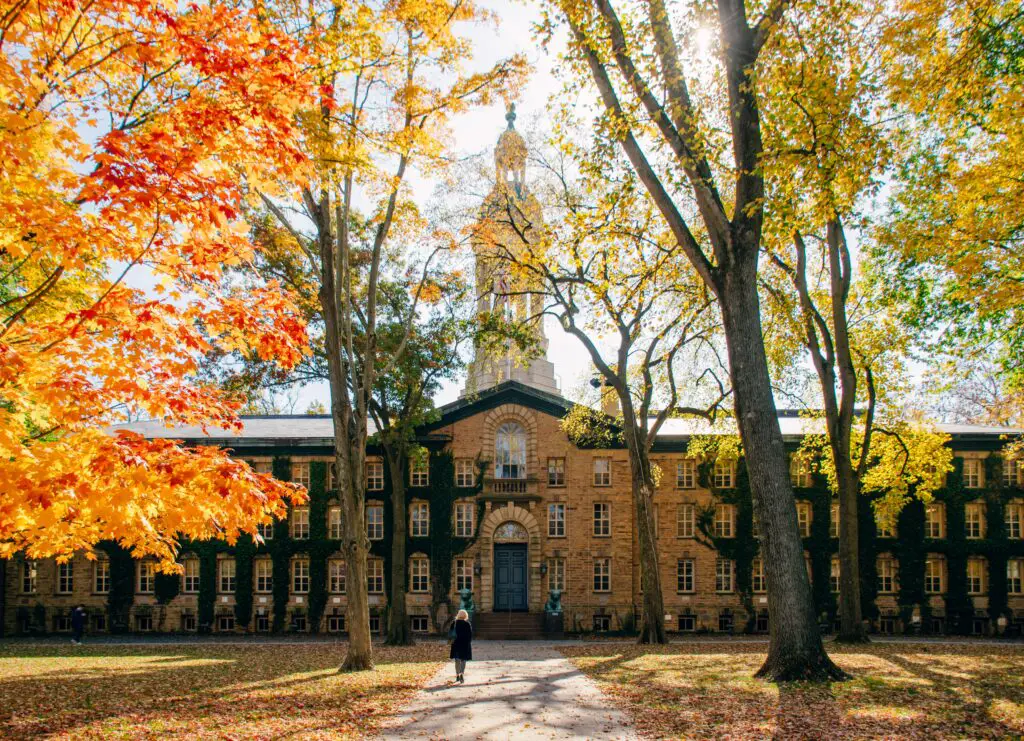Princeton University is a private Ivy League research university located in Princeton, New Jersey. It was founded in 1746 and is one of the oldest universities in the United States. In this essay, we will discuss the pros and cons of attending Princeton University.

Pros:
Academic Excellence: Princeton University is widely regarded as one of the best universities in the world, consistently ranked among the top universities in the United States and internationally. It has a strong academic reputation across a wide range of disciplines, particularly in the sciences and engineering, humanities, and social sciences.
Small Class Sizes: One of the key benefits of attending Princeton University is the small class sizes, which provide students with more personalized attention and the opportunity to develop closer relationships with their professors. This can lead to a more engaging and supportive learning environment.
Research Opportunities: Princeton is a top-tier research university, with a focus on cutting-edge research across a wide range of disciplines. The university has state-of-the-art research facilities and equipment, and students have the opportunity to collaborate with researchers in a wide range of fields.
Diverse Student Body: Princeton has a diverse student body, with students from all 50 states and more than 100 countries. The university is committed to creating an inclusive and welcoming environment for all students, and has a range of programs and initiatives focused on diversity and inclusion.
Generous Financial Aid: Princeton is committed to making the university accessible to students from all backgrounds, regardless of their financial situation. The university offers one of the most generous financial aid programs in the country, with no loans and a need-blind admission policy.
Cons:
Competitive Environment: One of the downsides of attending Princeton is the competitive environment, which can be intense at times. The high-achieving student body and rigorous academic program can create a pressure-cooker atmosphere, and some students may struggle to keep up.
Limited Social Scene: While Princeton has a range of student clubs and organizations, some students may find the social scene to be limited. The university is located in a relatively small town, and there may be fewer opportunities for nightlife and social activities than at larger universities in more urban areas.
Cold Weather: Princeton is located in the Northeast, and the weather can be cold and snowy during the winter months. Students should be prepared for cold weather conditions and take steps to ensure their safety and comfort.
Expensive Cost of Living: As a private university located in a relatively affluent area, the cost of living in Princeton can be high. Housing, food, and other expenses can add up quickly, and some students may find it difficult to make ends meet.
Workload: The academic workload at Princeton can be intense, particularly in the first year when students are required to take a set of rigorous courses known as the General Education Requirements. Some students may struggle to balance their academic workload with extracurricular activities and social life.
In conclusion, attending Princeton University can provide numerous advantages, including academic excellence, small class sizes, research opportunities, a diverse student body, and generous financial aid. However, students should be prepared for challenges such as a competitive environment, limited social scene, cold weather, expensive cost of living, and workload concerns. They should also take steps to ensure their success and well-being at the university, such as seeking out academic and social support systems and preparing for the weather and cost of living challenges.